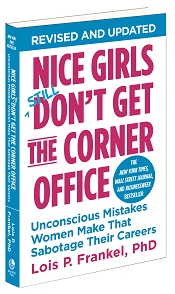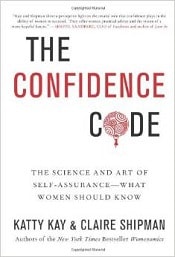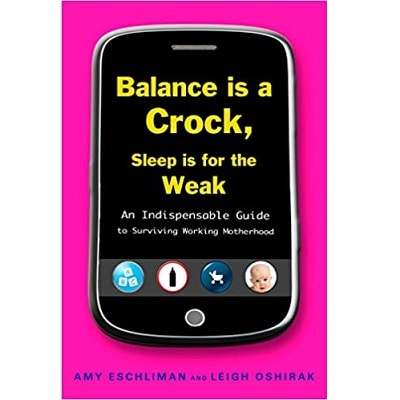This post may contain affiliate links and Corporette® may earn commissions for purchases made through links in this post. As an Amazon Associate, I earn from qualifying purchases.

What should you do when mental health issues are holding you back and making it difficult for you to build the career you want? How can you push through fear and low self-esteem? Reader O wonders…
I have struggled with mental health problems for years and as a result have always worked really terrible jobs (combination of poorly paid, admin/dogsbody type roles with bullying managers). I know it's a combination of fear and rock bottom self esteem that's the problem. I am in my early twenties and have luckily never been unemployed but I've never liked any of the jobs I've had. I am planning on going back to university for a masters degree soon with the hope of working in either journal publishing or widening participation but how can I make sure, once I've graduated (again), that I don't keep going for bad jobs? Any help would be greatly appreciated.
I'm so sorry to hear that, O. We've talked a bit about imposter syndrome, as well as discussing the book The Confidence Code, and I would encourage you to read both of those posts. I have a few thoughts for you, but I can't wait to see what the readers say.
Set up a support system, perhaps with professional help. Here, where you note that you've “struggled with mental health problems for years,” my first suggestion would be to find a therapist or life coach who can help you navigate the waters. Going back to school, looking for a job — this is all stressful. You can do it, but you should get your support system in place and set up regular check-ins. At the very least, introduce yourself to the career services department at your school and see what resources are available to you there.
Get your groove back. I felt pretty beaten down after my years in Big Law — and was fortunate enough to have two events in my life simultaneously happen to help me get my groove back. I've written before about my attitude revamp, but briefly:
Find something — anything — that you're good at, or enjoy. And do it. For me this was taking a humor writing course — I'd always loved humor writing, but hadn't had time to do any of it (or anything else that wasn't school- or career-related in years). I reconnected with an older part of myself and felt, at least, like I was pretty good at something.
Listen to the people who think you're great. Second, by pure dumb luck, I also started dating my now-husband around the same time, and his support and encouragement and love also helped me regain my self worth and get my groove back. I'm not necessarily encouraging you to date more — that can be death by a thousand lashes more often than not — but I will say to reconnect with your friends and family who support and encourage you. This may take a big of cognizance on your part — we've all had friends and family bring us down instead of lifting us up — but if you can recognize your supporters and schedule time with them, you're half way there.
Pay attention to little things while interviewing to make sure that the work environment is right for you. Do people say hello to each other in the hallways or elevator? How does the lowest person on the totem pole get treated by the people you're interviewing with (whether it's the secretary, the mail person, etc). If there's a place that you can watch the office for a while before your interview — a public payphone or coffee shop across the street, a cafe within the building, etc., the see what you can observe from there.
Fake it til you make it. We've talked before about doing the work you're not ready for, but in your situation I think you may really have to give yourself permission to fake it, maybe for a long time. Get up, put on a smile, and do the first project of the day — then do the second — then the third. Keep going until it's time to go home.
(Pictured: Reminder., originally uploaded to Flickr by Sameer Vasta.)
I'm curious, ladies — have you ever felt that you weren't worthy of good jobs? How do you avoid unhappy jobs, and push through fear and low self-esteem to build the career you want?
Some must-read business books for women — update coming soon!






Awa
All these are great suggestions. I would suggest doing some informational interviewing with people in the industries you are interested in before committing to this masters degree. You want to avoid a situation where you graduate into a field with poor job prospects, or low pay. You also want to find out about what organizations to target for jobs/internships, learn about the work – both good and bad. Also think about what kind of work do you like doing? For example, admin work can sometimes be routine and very repetitive, is that something you like or dislike? Or you could be someone whose job involves a lot of people interaction, that may be good or bad depending on whether you are introverted/extroverted. The Myers Briggs test is often mentioned here, these types of tools can help. Sometimes a job can be a poor fit because it really clashes with your personality.
Anonymous
I agree. It is never a good thing when you do NOT have a support structure for handeling stressful situation’s like job’s. I suggest you get your FAMILY to sympathise with you and provide support. This is how I got thru after I gradeauted law school but did NOT have a big powerful job like my friend’s who worked on THE HILL, or in big firm’s like Covington and other’s in DC.
Because I did NOT have law review, I did NOT get interview’s with the big firm’s and the places that wanted me just wanted me b/c I was cute. So I worked serveing supeenies. That did NOT help my self esteem. But dad said that would be over when I got my first real law job, and he could NOT help b/c all of his cronie’s were in the military and I did NOT want to become a JAG. But I suppose it was b/c I was beautiful that the manageing partner decided to talk to me and then hire me. He got a lot extra, b/c I also turned out to be smart and his “billeing machine”. YAY!
So if you hang in there, and get support from friend’s and family, you will realize your potential. Do not let men dismiss you as a pretty girl without a brain who is just there as a sexueal winkie repository. You are a woman with a BRAIN, and make sure they know it. That is how I am now a partner and have a man working for ME for a change. We women have the power–we just need to know how to use it. DOUBEL YAY!!!!
anon
Ellen! You trickster.
Anonymous
I’m going to add in another suggestion- volunteer or get a part-time job that you truly enjoy (hopefully in your preferred industry) and are good at. It will remind you that it’s possible to enjoy working, and that you’re great and have potential, but your previous jobs were just awful. So you’re not the problem, your jobs were.
This explains things a bit
My inlaws are nice people, but I hear a lot of “wow, you really didn’t have to do X because X is so hard” from them.
X could be driving with the children to see them, roasting a chicken for dinner, etc.
I can see how having that in the air can set some normative expectations: neither of my siblings-in-law has done much of anything (so they live as children, with much of their mother’s help, even though they are in the 40s, because so much of life is defined for them as “hard” and the sentiment is that you shouldn’t ever have to struggle at something (and who knows: then you might fail / you probably will fail / you are not cut out for doing anything anyway)).
Anonymous
Failure is sometimes necessary because it helps us grow. With failure comes fear. I think it’s natural for the OP to feel that way especially if she has had a generally bad time. But this is why she needs to have a good support system to get back on track.
This explains things a bit
I agree. Life is hard. HARD! I can’t imagine when in human history it wasn’t. When I read the Little House books now, I think back to how much of their lives were hard work. And not just for the parents: the children were busy helpers, too, which helps you negotiate a world of constant work. At least I don’t have to go out and hunt my dinner and make sure I have enough firewood to keep from freezing tonight and don’t have to carry water in from the well.
People have great capacities for growth, but the mind and the spirit are like muscles: if you don’t develop them, they start to wither away or become depressed.
My inlaws mindsets, while seemingly benign at first, really seem to be corrosive of the spirit. [I had a roommate once who had parents try to talk her out of taking an honor scholarship at Flagship State U because she might not do well as a big-fish-small-pond girl if she were in a bigger pond, but she went anyway.]
aBcDash
This. My parents have the idea that struggle means you’re not ‘naturally’ good at something, so don’t bother trying to get better at it. I agree that it’s a really hard attitude to disengage from, and not helpful to others around you.
AIMS
I think this is why it’s so important for kids to play sports – to learn that losing is okay and sometimes it happens but then you play again the next week because that’s just what you do. I think I also read somewhere that it’s good for kids be forced to do something they’re not adept at naturally because it teaches them about struggling to accomplish something and hard work and all that. Actually, it may have been an article on how Michele Obama makes her daughters each do one activity every year that they’re not great at, like learn the violin or something like that.
la vie en bleu
Kat’s ideas and advice are all great. I will also throw in a recommendation for AskAManager dot org as a great source of advice for job hunting and interviewing, and specifically how to spot bad managers and bad workplaces. Look through the archives, and also read the comments, the commenters over there are amazing.
Zelda
+1 Askamanager was invaluable when interviewing for my current job.
Cherie
I highly recommend reading, “Mindset: The New Psychology of Success” by Carol Dweck. Dr. Dweck is a highly respected professor of psychology at Stanford and this book is life changing. Her research findings have been used to develop interventions that increase academic performance and these interventions are widely used in educational settings.
Cherie
In the book, Dr. Dweck discusses how your perceptions of failure impact future outcomes and how to change your mindset surrounding failure in order to foster success in the future. Her work is grounded in social science research.
la vie en bleu
Wow, this sounds amazing, and extremely relevant to me right now. Thank you so much for the suggestion, I’m ordering this immediately.
emeralds
I’ll third the rec! I read it just before I started grad school and while I wouldn’t say it changed my life, it continues to be an extremely useful tool for re-framing situations where I struggle, whether personally or professionally. And it is absolutely grounded in real, empirical research, which (as someone in a social science field who has actually done research) I appreciate a lot more than some of the more woo-woo stuff.
ErinF
Dweck! Was literally JUST talking about this with my boss and couldn’t remember the researcher’s name. Thanks!
anon
I hope this isn’t too much of a threadjack, but would this book be helpful for a high-schooler? Or for a parent of a high-schooler who has the mindset that struggle means you’re not good at something and shouldn’t bother trying and doesn’t understand that often struggle is just a natural part of getting from point A to point B?
anon
To clarify, fear and low self-esteem are certainly key pieces of the puzzle for this particular teen.
emeralds
Yes, absolutely. It’s short and written in a very approachable, practical tone.
Cherie
This would be helpful for both the highschooler and the parent!
Alana
I have struggled with this, as it takes a healthy self-esteem to apply for jobs, write convincing cover letters, and do well in interviews.
One thing that helped was to create an alter ego. I gave him a name and persona (entitled, boarding school graduate- because that’s who tends to run things). When making decisions, I would ask, “What would ____ do?” It helped me get out of a small city that was a bad fit and closer to family and friends, along with a better office, more supportive work environment, and more convenient neighborhood to work in.
Anonymous
I like the idea of an alter ego for those moments when you feel “less-than”. Good tip.
Scout
Even Beyoncé has her own alter ego- Sasha Fierce.
BMBG
So does Mindy Lahiri: Beyoncé Pad Thai.
anonomom
So cute!
anon
The suggestion about support network is great. My husband struggles with anxiety and depression (which also often have a self-esteem component). He’s very successful but somehow the way he describes himself, you’d think he’d failed everything he’s ever tried. What seems to have been helpful to him is that I basically refuse to let anyone speak poorly of my husband or of my children’s father — and that applies to him, too! So when he starts telling me how bad he is at this or that (or saying things like “I s@ck”) I tell him he can’t talk that way about my sons’ father. It seems to help him to see that we all love and admire him, even when he doesn’t feel like he deserves it.
Then I make him explain to me, in detail, why he thinks [bad thing about himself] is true. I argue him point for point, explaining why his conclusions are wrong. So, for example, if he says “I f@cked up that presentation. I s@ck.” I’ll say “why do you think you f@cked it up?” “Because S [his boss] didn’t like it.” “Why do you think she didn’t like it?” When he has to explain exactly what happened, I can show him how there are other conclusions to draw from what happened. So if S said something was “okay” and my husband thinks that means she didn’t think it was great, I can point out the time last month she said something was “okay” but later raved about it to the SVP, so it’s more reasonable to think that “okay” for S means “great” and it’s just her style.
Sorry, this is long, but my point is that it might be helpful to empower someone — a therapist, an SO, a friend, a sister, your dad — to challenge your negative assumptions about yourself until you start to change your thought patterns to draw more positive conclusions. It seems to be working for my husband.
Anon
Ugh, as someone with anxiety, I appreciate what you’re going for here, but I hope you aren’t literally “arguing point for point”! That sounds exhausting and adversarial to me.
anon
Maybe it depends on personality. We’re both lawyers with litigation and policy backgrounds and this kind of step by step analysis seems to work. But we basically spend most of our time debating (that’s what we did for four hours the night we met) so maybe know your audience?
anon
Not sure if the original letter writer regularly reads comments, but I work in academic publishing and while graduate education is useful in certain aspects of publishing, a bachelor’s is fine for plenty of others. I would recommend an internship or freelancing to get your foot in the door. For grad school, an a specialized topic (such as anthropology, biology, whatever) may be as useful as a degree in publishing.
Emma
I would also add in here, as someone who used to work in mental health, that women tend to become much more self-confident and emotionally in control during their twenties — so you may notice your mental health improving just through the sheer process of maturation.
Beyond the career-specific advice, I would also urge you to make sure that you’re getting treatment for whatever mental health problems you’re having, and getting treatment that is really aimed at helping you to take control of your life. I am a huge fan of “Dialectic Behavioral Therapy” for young women. I trained in that therapy, and implemented many of the skills that DBT teaches. It can be very empowering, and one of the fundamental concepts is separating our emotional mind from our rational mind. That sort of thing might help you when it comes to your career.
Been There, Done That, Have the T-Shirt
I worked a string of good-on-paper-but-actually-I-was-working-for-tyrants jobs, and here’s the thing: I have found that I am now an *expert* at identifying them. I know, often in just minutes, what type of boss someone is going to be, because I know what my old boss acted like when s/he was on his/her best behavior and I can compare that to my interviewer. Think about it – you know what awful bosses look like, in lots of settings, up close and personal. So when you’re interviewing, you will recognize them (really, you will, I promise!). The key is to (a) trust yourself and your own perceptions, and (b) be willing to walk away. Don’t let the fear that an offer is the only one you’re going to get make you feel like you have to take just any job offered – you don’t! You’re clearly a desirable candidate – you’ve spent, it sounds like, ALL of your 20s so far employed even while coping with mental health problems – that’s amazing, and it means that people who meet you WANT to work with you. Trust that. Trust your own knowledge and track record of being able to land jobs, and hold out for the RIGHT job, instead of the first one that comes along.
anon
This is great advice, especially the part about “being willing to walk away.” I always had a gut feeling about my future managers that was spot on — whether they would be flakey, behind the times, kind, mean or whatever. The problem was I felt I had no other good options but to take the job. Try to get in a place in your life where you can not take the first job that is offered to you.
Anonymous
Yes. If one good thing comes out of crappy jobs/working for horrible bosses, it’s knowing how to spot them. And you have got to love yourself enough not to put yourself through that.
Fishie
Can you tell us more about what signs to look for?
Anonymous Poser
Yes, please! I second Fishie’s request.
Been There, Done That, Have the T-Shirt
Sorry so late, I just saw this but I figured the response could be useful anyway, so some stuff, in no particular order:
1. Lots of self-specific stories in response to questions about the organization/the role. For example, if you ask someone what a typical day in the role looks like and the interviewer spends 20 minutes telling you about the pitch they nailed last Monday, that’s not a good sign.
2. Any comments about needing employees who are “tough” or “have thick skin” or “give 110%.” Normal people who are not themselves jerks assume that if you’re applying for a job you plan to do the work fully and to the best of your ability and they don’t need to explain for five minutes about how they’re looking for someone who’s “willing to work hard.” Needing to talk about it means they’ve hired people in the past that they now consider to be “not hard workers” – so, either their hiring process is bad and they’ve hired actually lazy people (not good, since you’ll have to work with/for those lazy people), or their expectations are insane and if you want to do things like, I don’t know, say, eat lunch, or, say, see your family during daylight hours at least once a week, you’re going to be labeled by the company as working insufficiently hard and it’s going to harm your career development (and sanity, because seriously, who wants to work that much?).
3. Ask why the role is vacant – if the previous holder of the job you are applying for “quit unexpectedly,” and/or they can’t explain/don’t know where the person went, and/or they trash talk the person, be on the lookout for trouble. It’s flattering to think that the last person in the role was just bad at it and you are so super-special that you are going to be just fine at it, because you are an American and you shall work hard and pull yourself up by your bootstraps, goshdarnit, and sure, sometimes people really are bad fits for jobs and/or quit unexpectedly for parts unknown and/or deserve to be trash talked, but a company that treats people well will not be trying to sell you on the role by comparing you favorably to the person who used to hold it and/or making that person look bad – they’ll be trying to sell you on the role by giving you an honest picture of the role and highlighting the good parts of it.
4. Ask to meet with other people at your same level. Really LOOK at them and listen, not just to what they say but how they say it. When I interviewed at my last bad job, I met others at my level, and while they were saying the right stuff, the conversation felt “off,” and they seemed somewhat unfriendly. At the time (because I had an active jerkbrain bringing me down), I assumed it was because I had somehow made a bad impression (was it my cheap bag? was my hair too frizzy? maybe it was because they are thin people and I’m chubby? that joke I tried to make offended them? you get the idea). Turns out they are lovely people (who are still my friends even now that I don’t work at bad job anymore), and the weirdness was because (a) they were exhausted because they were being worked to death; and (b) they were debating whether and how to tell potential candidates to run, no, seriously, RUN! when talking about the job because the environment was so bad. If something feels off, if you feel like you’re not clicking with people you’d be working directly with or for, it’s a decent sign it’s not the right job – not because you’re bad, but because there’s something wrong with the job.
5. Ask what the downsides of the role are, and really listen to the answer. If it’s a bad environment, the answer will be too glib (“Downsides? You’ll have so much fun in Role that the only downside will be going home at the end of each day, hahahaha!”), or you’ll get an honest answer (“well, Boss is a bit of a yeller, but as long as you do good work it’s a great role.”) When you get an honest answer, BELIEVE IT. You are not the super-special Narcissistic Yeller Whisperer – you are not going to be so good that Boss will never yell at you, because guess what? Boss yells. It’s what he does. You could be the second coming of Warren Buffet and Boss is still going to yell at you. It’s not you. So when you do get startlingly honest answers, believe them!
Hope this helps somewhat – it’s by no means comprehensive, but these are definitely things I look for.
la vie en bleu
Yes. I agree with all of these. Ask lots of questions about the work environment and things like management style and performance evaluation process, and listen between the lines of the answers. If there are not good or vague answers, that is also a red flag. Check AskAManager dot com for really good specifics on questions to ask.
My one addition: What did the previous person in this position do that really impressed you? And what one thing about their work or skillset would you change?
Again, if there are clear, specific, but balanced answers to this, great. In one interview the two hiring managers exchanged a look, and then said “we are not allowed to speak about former employees” and then repeated the general statement they had already said about important skills for the position. I rejected that offer. That, along with other weirdly vague answers were huge red flags. I saw the position reposted about 6 months later…. mhmmm…
A
I’ve been there, anxiety and depression can be a real bee with an itch sometimes. I definitely agree with surrounding yourself with people who think you’re awesome! It’s really demoralizing to try to date someone who can’t be bothered to make time for you, or so-called friends who never invite you to anything. Forget those people and stick with the people who show you, time and time again, that you mean something to them.
Also Anxious
I like your point, Kat, about how the people on the lowest part of the totem pole are treated. I found that my last job dramatically exacerbated my tendency toward depression and anxiety. When I was making the decision to leave, I realized that none of the corporate values made any mention about caring for the people in the company. Once I thought about it, it became obvious that the signs were there from the beginning: Engineers were treated like gods, and customer service lived in a state of constant fear. Their fear was more obvious, but it permeated the entire company.
The fact is that you can have a loving roommate, partner, and family, but if the culture at work is disrespectful, that easily dominates your self-perception. So I do think that — although it takes tremendous, tremendous energy to search, especially when you don’t believe in yourself — you *can* look for respect and promotions from within in your next workplace. That can help reinforce the work you’re doing yourself to help change the way you think.
Anon for this
just wanted to chime in to say that it is possible to have mental health problems and still become successful – no one I work with in my role as general counsel would guess that I’ve dealt with depression my entire adult life. So for the original poster – you can do this.
bridget
First thing: plenty of people in their early twenties have college degrees and work in jobs they dislike. Something like half of college graduates will not find work that requires a degree. So please stop taking any of that as a sign that you are defective, just that our economy is broken.
Moving along: If you are doing low-level work, sign up with every placement agency in town and have them find a better job for you. There’s temp to perm, perm placement, contract work, you name it. You can at least stop doing low-level jobs for jerk managers, because plenty of people will be happy to hire you AND be nice to you.
For those who have crummy self-esteem (or are socially awkward, or, like me, can make would-be tyrant managers explode during an interview) but are quite good at work, anything to bypass interviewing is a gift. Temp agency placement? Check. In at a big company where they are happy to nurture talent, and your “interview” is the fact that you do your job well, are nice to be around, and come in on time? Check.
Finally, solve one problem at a time. Step One might be getting away from nasty work environments, and when you are merely bored at work (as opposed to having it break down your self-respect), you can then work on finding a higher-powered job. Don’t try to solve all of your problems at once.
anonn
I definitely empathize with the experience of being bullied, underemployed, and underpaid. That has unfortunately been my career until the end of 2013. It is important that first and foremost you treat your mental health as, we a health problem and get therapy and meds if that is what you need to get through this trying time. In workplaces where bullying is tolerated, I have noticed that people tend to hone in on the person with mental health problems like a heat seeking radar!
Oh and Anon-GC who posted above, it is heartening to hear from a fellow in-house attorney that having suffered depression does not sentence you to a marginal career.
anon
If you are prone to depression, I do NOT recommend graduate school. Seriously, Master’s degrees have very little value to employers and are mainly cash cows for schools. If you feel bad doing work that doesn’t require a college degree, imagine how you will feel doing work that doesn’t require a Master’s degree (most work) and potentially a sizable student loan. You’d be better off financially and emotionally to spend the money on a career coach/counselor, in my opinion.